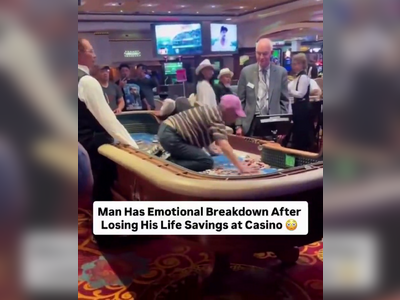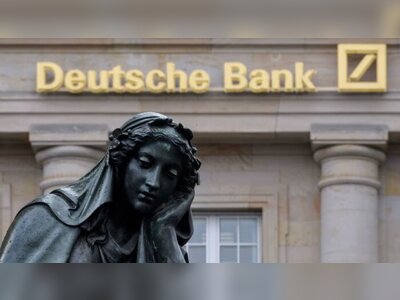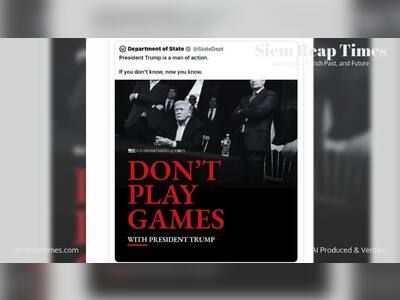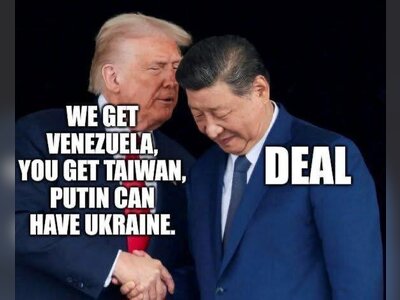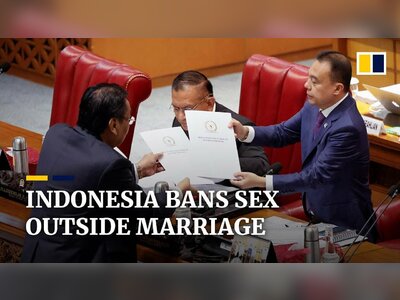Not Child’s Play: How Competitive Gaming Became a Global Economic Empire
Esports industry expected to generate nearly five billion dollars in 2025, with top football stars investing millions
The competitive gaming industry is projected to generate almost five billion dollars in 2025, and by 2029, that figure is expected to rise to six billion dollars.
Football stars like Sergio Agüero, Lionel Messi, and Diogo Jota are already investing millions and establishing professional teams.
What was once viewed as a waste of time has become a sector attracting some of the world's biggest sports figures.
Until recently, gaming was associated mainly with teenagers glued to screens and concerned parents worried about laziness and inactivity.
The field had a negative reputation and was generally considered a complete waste of time.
In recent years, however, the landscape has changed dramatically.
Competitions offering million-dollar prizes emerged, professional gaming teams were established, and streamers broadcasting their gameplay live to millions of viewers became stars.
The popularity of the sector surged, drawing attention once reserved for traditional sports.
Today, competitive gaming is known as esports.
Professional teams or individuals specialize in specific games—such as the popular football simulation FC25, shooting games like Call of Duty and Counter Strike, or other battle-style games—and compete at the highest levels.
Becoming a competitive gamer requires quick reflexes, concentration, decision-making under pressure, and opponent reading skills, often over extended periods.
According to analysis by Statista, esports revenue is expected to reach four point eight billion dollars in 2025, with an average annual growth rate of five point five six percent, reaching about six billion dollars by the end of 2029.
Last year, the total prize pool for the League of Legends World Championship stood at two point two three million dollars.
Although this marks a decline from over six million dollars in 2018, it remains a significant sum.
League of Legends, one of the world's most popular games, involves two rival teams battling online to penetrate each other's bases and destroy fortified structures.
Released in 2009, it now boasts one hundred thirty million active players—comparable to the number of viewers who watch the Super Bowl.
A study published in the University of Michigan's economic journal notes that esports' growth is meteoric compared to other sports, such as the NFL, which did not grow at all between 2014 and 2021.
One key factor is the young demographic of esports fans: thirty-eight percent are between sixteen and twenty-four years old.
As more of them enter the workforce, their ability to spend on tickets and merchandise grows.
Similar to traditional sports, esports generates substantial revenue from betting.
In 2025, the esports betting market is estimated to approach three billion dollars.
Major events in the sector draw tens of millions of live viewers and are sometimes broadcast on major networks like ESPN.
The industry's economic structure is particularly complex compared to other sports.
Unlike football, which is governed by FIFA, esports lacks a central regulatory body.
Often, fan communities organize and finance events and competitions.
Part of esports' growing success can be attributed to major sports stars entering the scene.
Some stream themselves playing live, others become ambassadors or business partners, and some even establish professional teams.
One of the most notable figures is Manchester City legend Sergio Agüero.
The thirty-six-year-old former striker streams himself playing FIFA and Valorant to millions of followers.
During the COVID-19 pandemic, he launched a Twitch channel called SLAKUN10, amassing almost one million followers quickly.
Today, his channel has close to five million followers.
After retiring due to medical reasons, Agüero founded KRÜ Esports and soon brought in his friend Lionel Messi as a co-owner.
While focusing primarily on gaming, the team has recently entered the world of padel, a tennis-like sport, and plans to compete in the Hexagon Cup, an event featuring stars like Rafael Nadal, Andy Murray, and Barcelona striker Robert Lewandowski.
Agüero has previously commented on the similarities between professional sports and esports, saying he naturally applies his sports experience to the gaming world.
He also noted that top esports athletes earn enormous sums from sponsorships and collaborations.
Agüero said he is "equally proud" of KRÜ's success as he is of his football career.
The management of professional esports teams resembles that of football or basketball clubs.
Teams are formed to compete in tournaments featuring games like FC25, Call of Duty, and Fortnite.
While prize money is important, the primary goal is building a loyal fan base on streaming platforms like Twitch.
Once an audience is established, teams attract sponsorships, collaborations, donations, and subscriptions.
Philipp Adam, CFO of G2 Esports, one of Europe's largest esports organizations, told the New York Times that entering the field is relatively easy, but building and managing a top-tier organization is an expensive endeavor.
Live streaming is affordable, but scaling operations to international competition levels demands significant resources.
Besides paying player salaries, high-level esports teams often employ nutritionists, psychologists, and coaches.
Expanding these resources across multiple squads makes maintaining a prestigious team a costly operation.
Agüero is not the only footballer thriving in esports.
Liverpool striker Diogo Jota, Manchester United midfielder Casemiro, Dutch and Liverpool defender Virgil van Dijk, and others are also involved.
Casemiro founded Case Esports in 2020, specializing mainly in Counter Strike.
The team has participated in thirty-nine tournaments and earned over one hundred eleven thousand dollars.
Jota owns Luna Galaxy, which has earned more than four hundred fifty thousand dollars from twenty tournaments.
Jota also promotes his esports activities to his two point four million Instagram followers.
David De Gea, now Fiorentina's goalkeeper, launched Rebels Gaming in 2020, focusing on League of Legends.
Bruno Fernandes and Juan Mata joined as investors in 2022.
Rebels Gaming has approximately seventy-five thousand social media followers.
These are just a few examples of major names entering the field.
What began as a perceived waste of time has become a rapidly growing industry attracting billions of dollars and elite sports figures.
The deep involvement of footballers like Agüero, Messi, and Jota highlights the increasingly blurred lines between traditional sports and competitive gaming, with discussions already underway about possible future inclusion of esports in the Olympics.
As the younger generation raised on gaming continues to mature, the industry is expected to keep growing and take on a more central role in global entertainment and sports.
Football stars like Sergio Agüero, Lionel Messi, and Diogo Jota are already investing millions and establishing professional teams.
What was once viewed as a waste of time has become a sector attracting some of the world's biggest sports figures.
Until recently, gaming was associated mainly with teenagers glued to screens and concerned parents worried about laziness and inactivity.
The field had a negative reputation and was generally considered a complete waste of time.
In recent years, however, the landscape has changed dramatically.
Competitions offering million-dollar prizes emerged, professional gaming teams were established, and streamers broadcasting their gameplay live to millions of viewers became stars.
The popularity of the sector surged, drawing attention once reserved for traditional sports.
Today, competitive gaming is known as esports.
Professional teams or individuals specialize in specific games—such as the popular football simulation FC25, shooting games like Call of Duty and Counter Strike, or other battle-style games—and compete at the highest levels.
Becoming a competitive gamer requires quick reflexes, concentration, decision-making under pressure, and opponent reading skills, often over extended periods.
According to analysis by Statista, esports revenue is expected to reach four point eight billion dollars in 2025, with an average annual growth rate of five point five six percent, reaching about six billion dollars by the end of 2029.
Last year, the total prize pool for the League of Legends World Championship stood at two point two three million dollars.
Although this marks a decline from over six million dollars in 2018, it remains a significant sum.
League of Legends, one of the world's most popular games, involves two rival teams battling online to penetrate each other's bases and destroy fortified structures.
Released in 2009, it now boasts one hundred thirty million active players—comparable to the number of viewers who watch the Super Bowl.
A study published in the University of Michigan's economic journal notes that esports' growth is meteoric compared to other sports, such as the NFL, which did not grow at all between 2014 and 2021.
One key factor is the young demographic of esports fans: thirty-eight percent are between sixteen and twenty-four years old.
As more of them enter the workforce, their ability to spend on tickets and merchandise grows.
Similar to traditional sports, esports generates substantial revenue from betting.
In 2025, the esports betting market is estimated to approach three billion dollars.
Major events in the sector draw tens of millions of live viewers and are sometimes broadcast on major networks like ESPN.
The industry's economic structure is particularly complex compared to other sports.
Unlike football, which is governed by FIFA, esports lacks a central regulatory body.
Often, fan communities organize and finance events and competitions.
Part of esports' growing success can be attributed to major sports stars entering the scene.
Some stream themselves playing live, others become ambassadors or business partners, and some even establish professional teams.
One of the most notable figures is Manchester City legend Sergio Agüero.
The thirty-six-year-old former striker streams himself playing FIFA and Valorant to millions of followers.
During the COVID-19 pandemic, he launched a Twitch channel called SLAKUN10, amassing almost one million followers quickly.
Today, his channel has close to five million followers.
After retiring due to medical reasons, Agüero founded KRÜ Esports and soon brought in his friend Lionel Messi as a co-owner.
While focusing primarily on gaming, the team has recently entered the world of padel, a tennis-like sport, and plans to compete in the Hexagon Cup, an event featuring stars like Rafael Nadal, Andy Murray, and Barcelona striker Robert Lewandowski.
Agüero has previously commented on the similarities between professional sports and esports, saying he naturally applies his sports experience to the gaming world.
He also noted that top esports athletes earn enormous sums from sponsorships and collaborations.
Agüero said he is "equally proud" of KRÜ's success as he is of his football career.
The management of professional esports teams resembles that of football or basketball clubs.
Teams are formed to compete in tournaments featuring games like FC25, Call of Duty, and Fortnite.
While prize money is important, the primary goal is building a loyal fan base on streaming platforms like Twitch.
Once an audience is established, teams attract sponsorships, collaborations, donations, and subscriptions.
Philipp Adam, CFO of G2 Esports, one of Europe's largest esports organizations, told the New York Times that entering the field is relatively easy, but building and managing a top-tier organization is an expensive endeavor.
Live streaming is affordable, but scaling operations to international competition levels demands significant resources.
Besides paying player salaries, high-level esports teams often employ nutritionists, psychologists, and coaches.
Expanding these resources across multiple squads makes maintaining a prestigious team a costly operation.
Agüero is not the only footballer thriving in esports.
Liverpool striker Diogo Jota, Manchester United midfielder Casemiro, Dutch and Liverpool defender Virgil van Dijk, and others are also involved.
Casemiro founded Case Esports in 2020, specializing mainly in Counter Strike.
The team has participated in thirty-nine tournaments and earned over one hundred eleven thousand dollars.
Jota owns Luna Galaxy, which has earned more than four hundred fifty thousand dollars from twenty tournaments.
Jota also promotes his esports activities to his two point four million Instagram followers.
David De Gea, now Fiorentina's goalkeeper, launched Rebels Gaming in 2020, focusing on League of Legends.
Bruno Fernandes and Juan Mata joined as investors in 2022.
Rebels Gaming has approximately seventy-five thousand social media followers.
These are just a few examples of major names entering the field.
What began as a perceived waste of time has become a rapidly growing industry attracting billions of dollars and elite sports figures.
The deep involvement of footballers like Agüero, Messi, and Jota highlights the increasingly blurred lines between traditional sports and competitive gaming, with discussions already underway about possible future inclusion of esports in the Olympics.
As the younger generation raised on gaming continues to mature, the industry is expected to keep growing and take on a more central role in global entertainment and sports.


